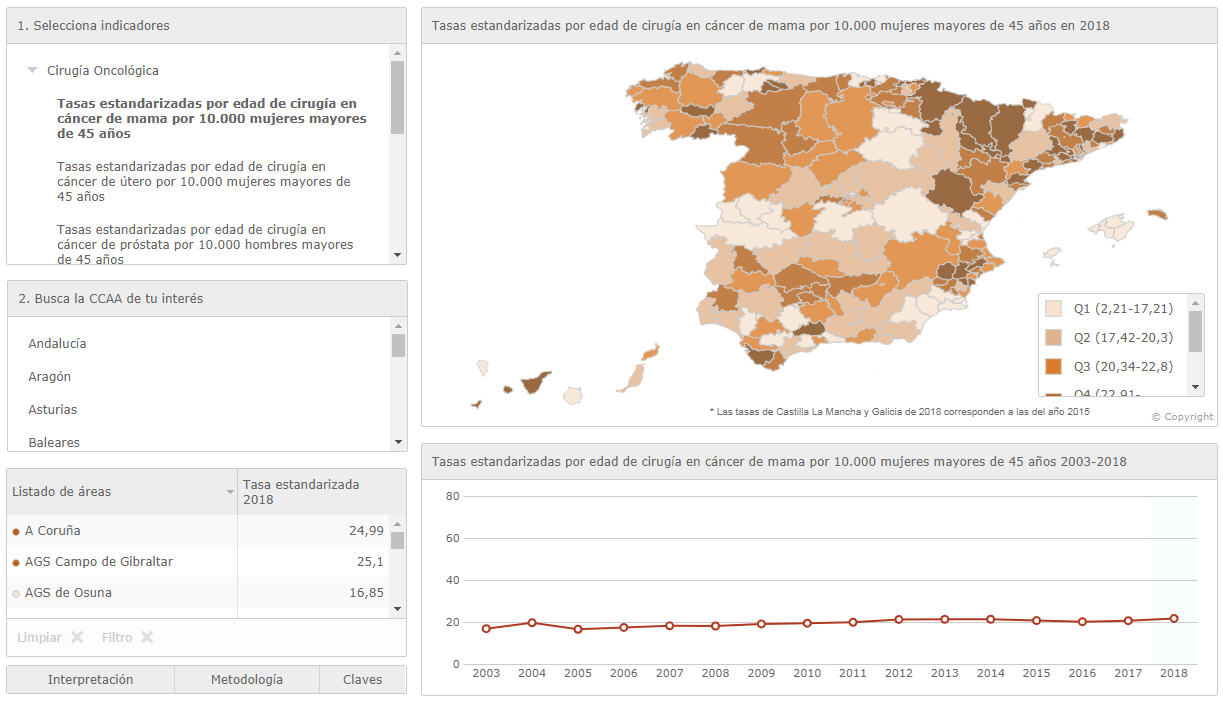Why do we measure variations in Oncologic Surgery?
This edition of the Atlas of Variations in Medical Practice Variations in the National Health System is about the variability in hospitalizations for surgical interventions performed to treat 8 oncological conditions (breast-conservative and non-conservative-, uterine, prostate, colon, bladder, stomach, lung and larynx cancers) in the hospitals of the SNS network.
These types of cancer were selected because of their impact on morbidity and mortality in the Spanish population. The selection of surgical admissions, as opposed to all oncologic admissions, derives from the feasibility of identifying them in the CMBD and also from the importance of surgery as a generic marker for the management of cancerous processes.
In fact, important variations in the rates of some surgeries suggest problems of quality of care, whether due to late diagnosis or differences in clinical management, which may be due to underutilization (non-intervention in ideal susceptible processes) or overutilization (intervention where surgery does not add value).
This update of the Atlas of Variations in Oncologic Surgery describes the variability in the utilization of different oncologic surgery procedures in 2018 and its evolution since 2003.
Specifically, the utilization of breast, uterus, prostate, lung and larynx surgery in population over 45 years old and colon, bladder and stomach surgery in population over 60 years old are described.
The Variability section shows the utilization of these procedures in the 212 health areas of the SNS in 2018 and its evolution since 2003.
The Performance Profile section shows the performance profile of each of the healthcare areas showing the result of all the indicators in each of them and their situation with respect to the 50th percentile rate (p50) of the SNS as a whole in 2018.































